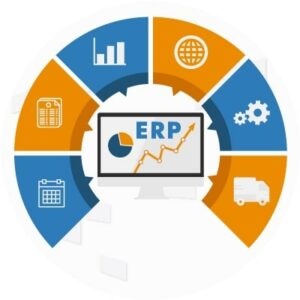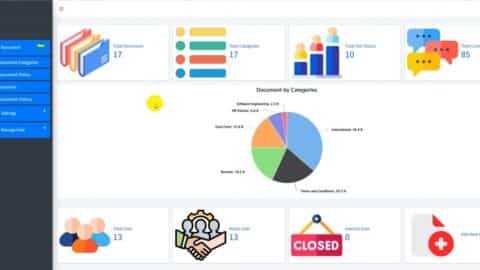Tax planning tips for small businesses with NetSuite ERP
NetSuite ERP streamlines business operations and improve efficiency by providing real-time data visibility, automated processes, and centralized data management. It offers a range of features and tools that can help companies to optimize their business processes, reduce costs, and improve profitability. As a result, small and medium-sized businesses often use an ERP consultant as a comprehensive business management system to support their growth and expansion. Hence, you got the first one among small business tax planning tips.
Table of Contents
Importance of Tax Planning for Small Businesses:
Tax planning is crucial for small businesses as it can help them to reduce their tax liabilities, increase their profitability, and improve their financial stability. In addition, effective tax planning allows small businesses to take advantage of the tax laws and regulations and to make strategic financial decisions that can positively impact their bottom line. Here are some reasons why tax planning is essential for small businesses:
- Reduce Tax Liabilities: Small businesses can reduce their tax liabilities by taking advantage of tax deductions and credits. By planning and organizing their finances, they can identify eligible expenses and maximize their deductions, lowering their taxable income and reducing their tax liability.
- Improve Cash Flow: Effective tax planning can also help small businesses to improve their cash flow by reducing their tax burden. By minimizing their tax liability, small businesses can have more money available for investment, expansion, and other business operations.
- Avoid Penalties and Fines: Small businesses that fail to comply with tax laws and regulations can face penalties and fines, which can be costly and damaging to their reputation. Small businesses can avoid penalties and fines and maintain compliance by planning and staying up to date with tax laws.
- Make Informed Business Decisions: Tax planning can help small businesses make informed financial decisions by providing insights into their financial performance, profitability, and cash flow. By analyzing their tax situation, small businesses can identify areas for improvement and make calculated decisions that can positively impact their bottom line.
Tax Planning Tips for Small Businesses:
Effective tax planning can help small businesses to save money, minimize their tax liabilities, and optimize their financial performance. Here are some tax planning tips that small businesses can use to maximize their tax savings and improve their financial stability:
- Keep Accurate Records: Small businesses should maintain accurate records of their income, expenses, and receipts throughout the year. It will help them identify eligible tax deductions and credits and accurately report their financial performance to the IRS.
- Review Your Business Structure: Small businesses should review their business structure and determine if they are taking advantage of all available tax benefits. For example, a sole proprietorship may save money by converting to an LLC or S-Corporation.
- Advantage of Deductions and Credits: Small companies should use every eligible tax credit and deduction. It includes deductions for home office expenses, business travel, employee benefits, and more.
- Plan Your Capital Expenditures: Small businesses should plan their capital expenditures carefully and take advantage of tax incentives for equipment, machinery, and other assets. It can help them to reduce their tax liability and improve their cash flow.
- Understand Your State Tax Obligations: Small businesses should know their state tax obligations and comply with all applicable tax laws and regulations. It includes sales tax, use tax, and other state-specific taxes.
- Stay updated on Revenue Laws and Regulations: Small-scale businesses must be aware of tax and regulations changes that could affect their tax obligations. It includes changes to tax rates, deductions, and credits.
By following these tax planning tips, small businesses can optimize their tax savings and improve their financial stability. Small businesses must work with qualified tax professionals to comply with all applicable laws and regulations.

Benefits of Using NetSuite ERP for Tax Planning:
NetSuite ERP is a comprehensive cloud-based business management system that can help small businesses to streamline their financial processes, improve their accuracy and efficiency, and automate their tax compliance. Here are some benefits of using an ERP for tax planning:
- Automated Tax Compliance. It includes mechanical tax compliance features that can help small businesses comply with local, state, and federal tax laws and regulations. It provides tax calculation, tax reporting, and filing of tax returns.
- Real-time Reporting and Analytics. Provides real-time reporting and analytics capabilities that can help small businesses to monitor their financial performance, identify tax planning opportunities, and optimize their tax savings. It includes dashboards, reports, and alerts.
- Streamlined Financial Processes. It streamlines financial processes such as accounts payable, accounts receivable, and inventory management. And this can help small businesses to reduce errors and improve their accuracy and efficiency. It can help them to make better financial decisions and optimize their tax planning strategies.
- Improved Accuracy and Efficiency. It enhances accuracy and efficiency by automating financial processes, reducing errors, and providing real-time access to financial data. Therefore, it can help small businesses to avoid costly mistakes and reduce their tax liabilities.
- Cost Savings. It can help small businesses to save money by reducing their administrative costs. Hence, it is improving their financial performance, and optimizing their tax planning strategies. So, it can help them to increase their profitability and achieve long-term financial stability.
NetSuite ERP provides small businesses with powerful tools and features. And these can help them to optimize their tax planning strategies, reduce their tax liabilities, and achieve financial success. With the right expertise and guidance, small businesses can leverage their financial processes and achieve their financial goals.
How do I get started with an ERP Consultant:
Beginning by hiring an ERP consultant is helpful in the process of setting up ERP software for your company.
- Determine your company’s needs. You may need an ERP consultant to help you determine your company’s needs and objectives. Also, Find the parts of your enterprise that can benefit from ERP systems and the functions you need.
- Find ERP consultants. Search for ERP experts with years of experience in their field and an established success rate in ERP implementations. But look into consulting reviews and recommendations from other companies.
- Request a meeting. First, Call prospective ERP consultants to discuss the goals and requirements of your company. It allows you to assess their understanding and communication style and decide whether they’re the right choice for your company.
- Discussion of the project’s scope and budget: During the meeting, you will discuss your project’s scope and budget. It’s crucial to understand the goals and timelines. Ask the consultant to submit specific details of the project’s size and the estimated cost.
- Hire the consultant. After you’ve chosen the consultant, they must sign an agreement outlining the project’s scope, timeframes as well as deliverables, and payment conditions. Establish transparent communication and follow up frequently to ensure you’re on the right track.
- Collaboration on implementation. Hence, working closely with your ERP consultant to set up the ERP software in your company will ease tax planning. Then, prepare to supply information and other resources when needed. As well as ensure that your staff is trained to use the latest system.
- Maintenance and support on an ongoing basis. When you have implemented your ERP system, Work with your consultant to set up regular support and care to ensure that the system continues to fulfill your company’s demands and remains up to date.
Conclusion:
To summarize, working with hiring a consultant requires identifying your company’s needs, researching ERP consultants for tax planning and scheduling a meeting to discuss the scope of your project and budget, involving the consultant installation, and creating ongoing maintenance and support.

Rutuja Katkar is a highly motivated marketing professional with a passion for exploring different aspects of the field. She has a strong interest in reading and researching new strategies to keep up with the ever-evolving marketing landscape. She’s constantly on the lookout for creative and innovative solutions that exceed expectations.










